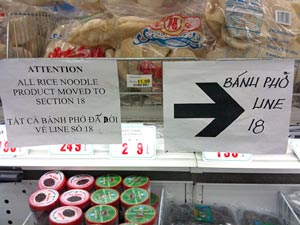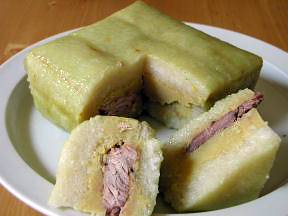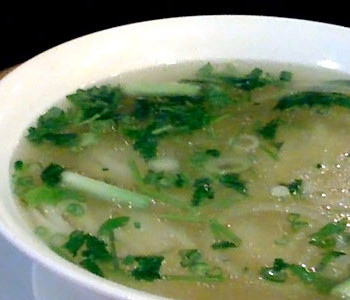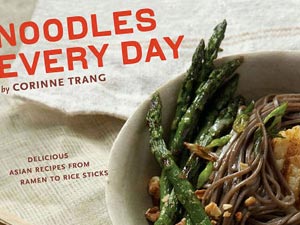Updated 01-08-18. This is Part 2 of a multi-part article on the pronunciation of Vietnamese phrases and words. The very popular Part 1 is closed to requests but has more than 50 audios you can listen too. If you have a request please check there first as someone else may have requested it already. Follow this link to find Part 1 of Pronunciation of Pho and Other Vietnamese Words and Phrases.
 I know there are folks out there who are looking for help with pronunciation of Vietnamese words and phrases, and are looking for accurate and easy to understand guidance and reference on how to properly pronounce certain words in Vietnamese. This post, which is Part 2 of this series, aims to help you with exactly what a word or phrase should sound like, in both Northern and Southern Vietnamese accents when appropriate.
I know there are folks out there who are looking for help with pronunciation of Vietnamese words and phrases, and are looking for accurate and easy to understand guidance and reference on how to properly pronounce certain words in Vietnamese. This post, which is Part 2 of this series, aims to help you with exactly what a word or phrase should sound like, in both Northern and Southern Vietnamese accents when appropriate.
Have a Vietnamese word or phrase you'd like to hear? Here's what you do: Leave a comment to this post with the word(s) you would like to hear pronounced, and I'll post a response with audio files demonstrating exactly how they should sound. Please include as much information about the words as you can, with maybe the context you found them in, their meanings (if you know), or where you encountered them. This is because with proper accent marks the same looking words may have different pronunciation and meanings altogether. This will help me say them correctly for you. This site is about pho first and foremost, but I'll post answers to whatever inquiry received.
If you're looking for more specific pronunciation, check out these posts:
- For the definitive guide to pronounce "pho" in complete conversational sentences with both English and Vietnamese audio: How to Pronounce Pho: You Can Say It, Pronounce Pho, Say: Phở…
- How to Order Pho in Vietnamese
A single sound can sometime confuse you even more than no sound at all. Therefore, I'm also providing full sentences to demonstrate how the words/phrases should really sound in everyday conversation. You should be able to recognize these sounds in both English and Vietnamese conversational sentences. I'll start with something requested by Luis from the last comment from Part 1.
- Pronounce: "Người Rừng" which literally means "jungle people."
- Southern accent (twice, slower then faster) then Northern (twice.) Người Rừng.
- Southern accent (twice, slower then faster) then Northern (twice.)
- Pronounce the lady's name: "Nguyệt."
- Southern accent then Northern. Nguyệt.
- Southern accent then Northern.
- Pronounce: "Tôi nấu ăn cho gia đình tôi" which means "I cook for my family."
- Southern accent then Northern. Tôi nấu ăn cho gia đình tôi.
- Southern accent then Northern.
- Pronounce: "Bún chả giò chay" which means "Vermicelli noodles with Vegetarian Spring rolls."
- Southern accent then Northern. Bún chả giò chay.
- Southern accent then Northern.
- Pronounce: "Heo xào xả ớt" which means "Pork sautéed in Hot and Spicy Lemongrass."
- Southern accent then Northern. Heo xào xả ớt.
- Southern accent then Northern.
- Pronounce: "Bò xào xả ớt" which means "Beef sautéed in Hot and Spicy Lemongrass."
- Southern accent then Northern. Bò xào xả ớt.
- Southern accent then Northern.
- Pronounce: "nước mắm" which means "fish sauce."
- Southern similar to Northern, slow then faster. Nước mắm.
- Southern similar to Northern, slow then faster.
- Pronounce: "con chó, con mèo, con khỉ" which means "the dog, the cat, the monkey."
- Southern accent then Northern. Con chó - con mèo - con khỉ.
- Southern accent then Northern.
- Pronounce: "Thiên Chúa của tôi" which means "my God"; Thiên Chúa is God, and của tôi is my or of mine.
- Southern then Northern accent. Thiên Chúa của tôi.
- Southern then Northern accent.
- Pronounce: "nước mía" which means "sugar juice."
- Southern and Northern accents similar, repeated twice, slower then faster. Nước mía.
- Southern and Northern accents similar, repeated twice, slower then faster.
- Pronounce: "soda xí muội" which means "salty plum with soda drink," also with sugar for sweetness.
- Southern and Northern accents similar, repeated twice, slower then faster. Soda xí muội.
- Southern and Northern accents similar, repeated twice, slower then faster.
- Pronounce: "bún bò nướng sả" which means "grilled lemongrass beef with vermicelli noodle."
- Southern then Northern accent, each twice, slower then faster. Bún bò nướng sả.
- Southern then Northern accent, each twice, slower then faster.
- Pronounce: "tô nhỏ, tô lớn" which means "small bowl, large bowl."
- Southern then Northern accent, each twice. Tô nhỏ - tô lớn.
- Southern then Northern accent, each twice.
- Pronounce: "chúc bình an" which means to wish someone to be safe and sound, to be at peace and secured.
- Southern then Northern accent. Chúc bình an.
- Southern then Northern accent.
- Pronounce: counting from 1 to 10 in Vietnamese; 1-một, 2-hai, 3-ba, 4-bốn, 5-năm, 6-sáu, 7-bẩy, 8-tám, 9-chín, 10-mười.
- Southern then Northern accent. Counting from 1 to 10 in Vietnamese.
- Southern then Northern accent.
- Pronounce: "cho một (1) tô phở bò, cho hai (2) tô phở bò, cho ba (3) tô phở bò," which means to order 1, 2, or 3 bowls of beef pho, respectively.
- Southern then Northern accent. Ordering 1-2 or 3 bowls of beef pho.
- Southern then Northern accent.
- Pronounce: "bún riêu" which means rice vermicelli usually served with tomato broth with crab or shrimp paste.
- Southern then Northern accent. Bún riêu.
- Southern then Northern accent.
- Pronounce: "Huỳnh Thị Thu Hằng" which is a female name.
- Southern then Northern accent. Huỳnh Thị Thu Hằng.
- Southern then Northern accent.
- Pronounce: "Ninh Đức Hoàng Long" which is a male name.
- Southern then Northern accent. Ninh Đức Hoàng Long.
- Southern then Northern accent.
- Pronounce: "Ba cô gái" which means "Three Girls" or "Three Ladies" as in rice paper brand "Ba Cô Gái".
- Southern and Northern accents similar. Ba cô gái.
- Southern and Northern accents similar.
- Pronounce: "Tú" which is a name of a male person.
- Southern and Northern accents similar. Tú.
- Southern and Northern accents similar.
- Pronounce: "Vân" which is a name of a female person, and literal translation is "cloud".
- Southern and Northern accents, each twice. Vân.
- Southern and Northern accents, each twice.
- Pronounce: "Bánh ít trần" or just "Bánh ít" which is a small stuffed glutinous rice flour balls or dumpling.
- Southern and Northern accents, each twice. Bánh ít trần.
- Southern and Northern accents, each twice.
- Pronounce: "Chúc Anh Chị một trăm năm hạnh phúc!" (Wishing you 100 years of happiness!) or just "Chúc Anh Chị một trăm năm hạnh phúc!".
- Southern then Northern accents. Chúc Anh Chị một trăm năm hạnh phúc!
- Better way to say it. Southern then Northern accents. Chúc Anh Chị trăm năm hạnh phúc!
- Southern then Northern accents.
- Pronounce: "Cửa Việt". Cửa means "door" or "entrance" depending on how it's used. Cửa Việt is the firth of a river in north of Quảng Trị province in central Vietnam, where a former U.S. Marine Corps, U.S. Navy, U.S. Army and Army of the Republic of Vietnam (ARVN) base were located.
- Southern then Northern accents. Cửa Việt.
- Southern then Northern accents.
- Pronounce: "Kỳ Hà", a place in the town of Kỳ Anh, Hà Tĩnh province on the North Central Coast of Vietnam.
- Normal rate then slower. Kỳ Hà.
- Normal rate then slower.




@Cuong
It’s good to be a fan when this guy, Ninh Đức Hoàng Long is such a talented person and he can sing/speak in my own mother language (Hungarian) as well as in Vietnamese it’s just superb and I hope he will be a world known singer like Pavarotti was. Fair play to him!
May I please have the meaning of sounds like “dang vang vu you me too” in Viet ? My beloved manicurist of over nine years says it and I love her–she is my friend/I have been to her home,she has a beautiful nail salon and spa!!She is salon owner in Oklahoma City, Oklahoma. Thank you in advance.
@Velma Burgess: thanks for your request. I’m not sure what I can make of the phrase “dang vang vu you me too”. The first 3 words look like in Vietnamese, they look like a name but may be something else, and the last 3 are in English. I know you may be trying to phonetically write out what your Vietnamese manicurist was saying, but the whole thing does not mean much as provided. Maybe you can shed some light by providing, for example, under what circumstance the person said this or what topic you were discussing. That may help me understand more.
I’d love the pronunciation of Ba cô gái – I make Gỏi cuốn with some frequency and have always used rice paper but I’m doing a whole 30 diet that does not allow any rice. I read that these papers only have tapioca flour in them. I’d like to ask our local Asian market where I can find them.
Thank you!
Jennifer
@Jennifer: Thanks for the request. I think there are many other brands out there using tapioca flour, not just the Ba Cô Gái brand. Typical ingredients include:
– Rice flour or tapioca flour
– Salt
– Water
but oftentimes you can also find a brand that uses both rice and tapioca flour. Not sure where you’re located, but you should find lots of choices in the Asian market. Anyway the pronunciation for Ba Cô Gái (or three girls/ladies) is number 20 in the audio list above. Hope that helps.
how to pronounce ‘cua viet’ as in the river at the former DMZ during the conflict?
@Tom: Thanks for the request. You can find the pronunciation of Cửa Việt as No. 25 in the list above.
How to pronounce Ky Ha?
Hey Tony: Thanks for requesting. Assuming you’re referring to “Kỳ Hà”, a place in the town of Kỳ Anh, Hà Tĩnh province on the North Central Coast of Vietnam, check out the pronunciation as No. 26 in the audio list above. Cheers!